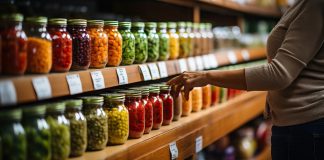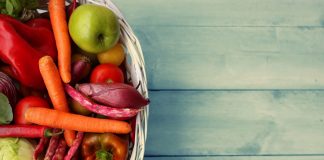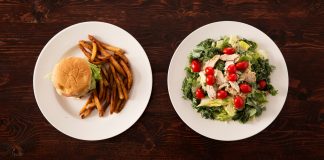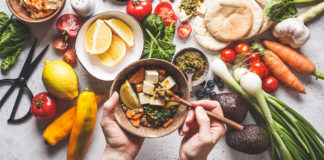Is sugar the most dangerous drug?
While few people can remember the details of their first hit, everyone can identify with the rush of satisfaction, the tingling delight that starts on the tip of your tongue and then courses through your entire body.
Are COVID-19 vaccines safe? What guarantees the absence of compromise?
How was it possible to produce a vaccine against COVID-19 in less than a year, and what guarantees are there that there were no compromises in the process? What can we say about the COVID-19 vaccine's safety?
The war with Bacchus
On 17 January 1920, America officially "dried up". It wasn't a shortage of water or a prolonged drought, but a law banning the sale, transport, and commercial production of alcohol.
What organic labels do and don’t say
The production of organic food has gained increasing importance worldwide, driven largely by consumer concerns over the potential negative health effects of foods grown through intensive, conventional farming methods (Brantsæter, Ydersbond et al. 2017).
Myths about vegan diets
For some people, being vegan is part of their lifestyle, but others cannot conceive of missing out on dairy products, meat or eggs. This could be explained by several myths that revolve around these diets.
God’s providence in times of crisis
Regardless of the form they take, crises give rise to legitimate questions about God's providence: Where is God when we suffer? Has He forgotten us? Is He punishing us? Does He still have things under control?
Perceptions of balanced nutrition in the digital age
Attitudes toward food form a complex mosaic shaped by factors such as nutritional needs, hunger, taste preferences, socioeconomic status, demographic and emotional influences, as well as ethical, cultural, and religious values. Equally important is the level of education on nutrition (Gahagan, 2012). This plurality of factors helps explain the global diversity of dietary habits.
Love in the Time of COVID-19
As we know all too well, life can be hard. Even in the best of times, life can be hard. But now this, a pandemic? How are we to cope?
Under the shadow of the pandemic: was 2020 really the worst year in history?
Peering through the dust settling from the chaos of last year, we are trying to see into the unknown of the coming year, hoping for the best. Irrespective of what our hopes for 2020 were, our expectations for 2021 seem to centre on things going back to normal.
Hope in the storm
This coronavirus crisis has, for me, some perplexing parallels with a well-known incident narrated in the Gospel of Matthew (14:22-33). The disciples are confined in a little boat in the middle of a terrible storm, almost as we are confined at home today by the emergency laws of our countries.
Change resistant: Why don’t we eat enough fruits and vegetables?
Our attitude towards fruits and vegetables as well as other plant-based foods is almost paradoxical: they are probably the healthiest of foods, they are tasty (or can be prepared to be, with little skill), and they are relatively cheap. However, most people consume these super foods in smaller quantities than is necessary.
Worse than death: depression; worse than depression: being judged for it
The latest global statistics on the incidence of depression indicate that more than 300 million people of all ages suffer from this disorder, out of the 7.6 billion people on the planet. This means that about 4% of the world’s population suffers from depression.
Vitamins, explained from A to K
We all know that vitamins are good for us. Many of us take supplements to boost the supply of vitamins in our bodies. However, it wasn’t until 1912 that Polish biochemist Casimir Funk actually came up with the concept of vitamins, which he called "vital amines."
How the antibiotic apocalypse can be avoided
“By 2050, AMR could potentially kill one person every three seconds and become a more common cause of death than cancer.”
Brain health, a key to a happy life
It can be simple or complicated to find and, especially, apply strategies to increase your level of happiness. What we can be sure of, however, is that in this ongoing discussion about what makes us happy, brain health is not a topic that can take a backseat.


























